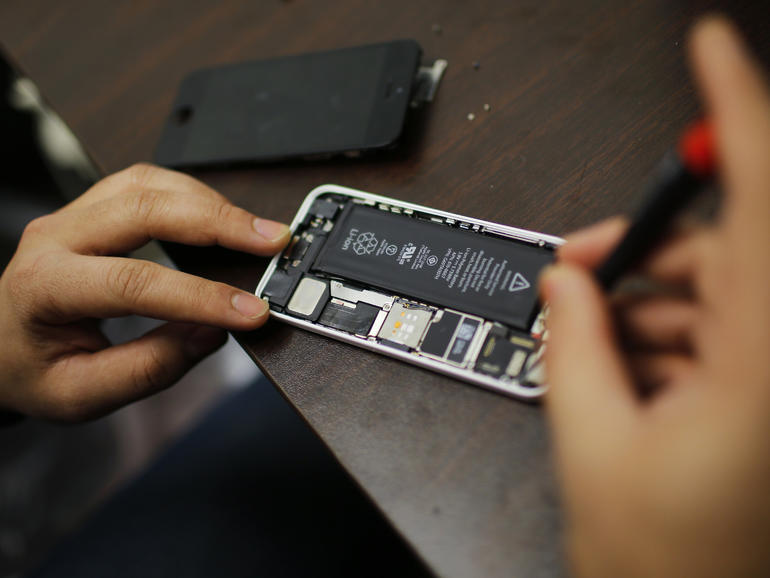The Australian arm of Japanese car manufacturing conglomerate Toyota is standing by the consumer guarantees that exist under the Australian Consumer Law (ACL) and does not believe focusing on the automotive sector as part of the Productivity Commissions’ right to repair inquiry is necessary.
Toyota outlined in its submission [PDF] that it believes “sufficient” and “very stringent” repair remedies already exist, and therefore no additional changes are required, touting that any further changes would “require significant time and resources, which would be an additional burden on dealerships around Australia without any evidence of material benefit to the consumer”.
The company also suggested given that the right to repair inquiry coincides with the release of the Treasury’s draft Competition and Consumer Amendment (Motor Vehicle Service Repair Information Sharing Scheme) Bill 2020, which already deals with many of the same issues, the inquiry should focus on “areas that have not been under the same level of scrutiny” and not covered by the draft Bill.
Further, the company argued that it does not believe there are barriers to competition in the current repair market between authorised Toyota repairers and other repairers, citing that there some 30,000 independent car repairs operating in Australia.
Toyota continued, raising concerns about the ability of independent repairs and what impact that could have on the safety and security of its vehicles.
“All Toyota dealers have frequent and comprehensive training to ensure they are in the best position to service and repair Toyota vehicles in a way that maintains the vehicle’s quality and safety … however, it is unclear what same standards, training and safeguards are in place for non-affiliated repair entities.”
It suggested the boundaries of what information is shared with repairers that are not associated with Toyota should also be considered.
“Certain data around critical vehicle systems such as software updates and calibrations are sensitive and highly specific, requiring the appropriate training and skills to ensure that they are installed and calibrated correctly so that they do not result in damage to the driver, the vehicle, or others. In some cases, the failure to correctly install software can result in a vehicle being rendered unsafe or unusable resulting in a risk of injury or significant repair expenses,” Toyota said.
Like Toyota, the Law Council of Australia (LCA) believes that a new right to repair is unwarranted, claiming it will “likely be counterproductive and cause confusion for both consumers and businesses”.
“Consumers are provided a broad range of protections under existing competition and consumer laws. For example, manufacturers and authorised repair networks are prohibited from entering into exclusive contracts or arrangements which have the purpose, effect or likely effect of substantially lessening competition … the competition and consumer committee considers that these laws sufficiently address anti-competitive, misleading, or unfair conduct which has a material effect on consumers and competition in repair markets,” the submission [PDF] from LCA outlined.
Its alternative suggestion is for the existing regime to be refined, including greater clarification and distinction between major and minor failures, what is considered as “reasonably available” repair and spare parts, and what is a “reasonable period of time”.
LCA also disputed the need for any law to be introduced to prohibit planned obsolescence, saying it would be impossible to distinguish between planned obsolescence and the natural evolution of products, plus it believes the ACL already provides consumers protection from any planned obsolescence.
The Department of Health has raised similar concerns surrounding what impact repairing medical devices could do if it were not carried out by the manufacturer. The department recommended that it is one aspect that inquiry could investigate, as it would be a “necessary element of regulating the safety, quality and performance of medical devices”.
“Depending on the construction of any ‘right to repair’ provisions, an exemption might be required to allow for manufacturers and sponsors to assert a health and safety rationale for non-compliance with right to repair provisions,” the department highlighted in its submission [PDF]
The right to repair issues paper was released in December, after Treasurer Josh Frydenberg requested the Productivity Commission to examine the state of consumers’ ability to repair faulty goods at reasonable prices.
The need for the inquiry was cited due to the Competition and Consumer Act not capturing right to repair issues, and thereby only allowing “limited rights or protections” to repair, the inquiry’s terms of reference state.
The deadline for initial submissions was 1 February. The Productivity Commission is now expected to deliver a draft report on the issue sometime in June.



